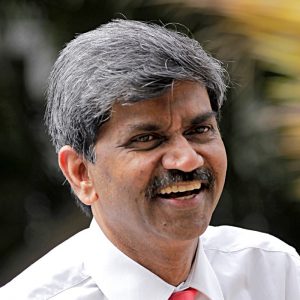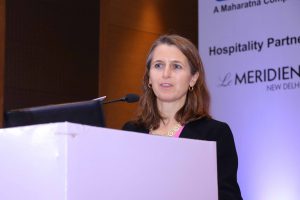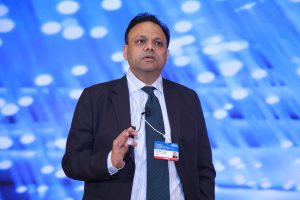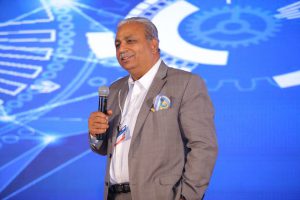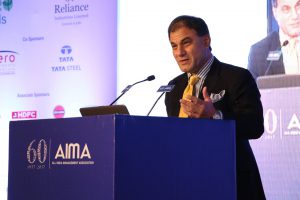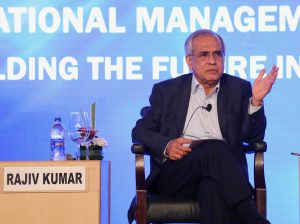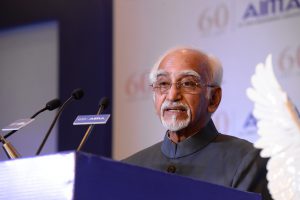Nandan Nilekani, Co-Founder, Infosys & the catalyst of digitisation in India, addressing AIMA’s 63rd Foundation Day 2019. Read Excerpts –

Nandan Nilekani addressing AIMA’s 63rd Foundation Day.
I think the topic – Innovation in the age of disruption – is very important. We tend to think that innovation is about 23-year olds wearing hoodies doing things, but in some sense, the innovation in India is happening by everybody at all levels. Innovation can happen in the private sector, the public sector, whether you are young, whether you are old, it really doesn’t matter. It is really the mindset of bringing new ideas into play. Ideas are really what makes a difference, and if you are able to get your ideas and get them embedded in the system, then anything can happen.
Innovation can come from anyone whether they are incumbents, challengers, young or old, in the private sector or in government; and I think that’s the spirit in which we need to think of innovation in this age of disruption because clearly disruption is a given, the velocity of change is unprecedented. Technology and many things are causing velocity, that we have never seen before, the knowledge accumulation is happening at a phenomenal pace, more knowledge was created in the last six months then the previous thousands of years, we are seeing the rise of data in unprecedented ways, we’re seeing companies accumulate huge amounts of data, thanks to smartphones they are using more data and tomorrow as we sensorize the world as every device every car everything has a sensor, then the data is going to be even further bigger than what it is today.
Continue reading →

